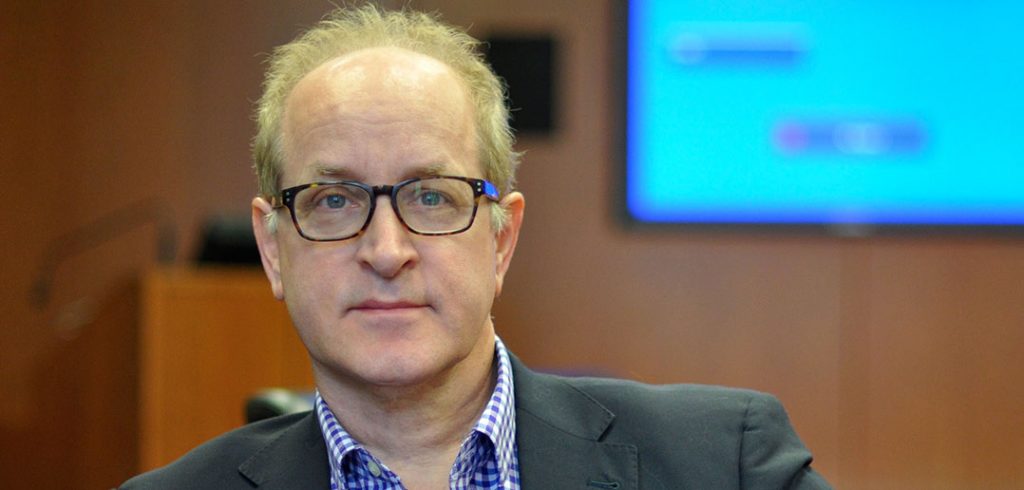Super Bowl 51 was notable for many reasons, both because of the unprecedented come-from-behind victory of the New England Patriots, and because a large number of the advertisements aired on Sunday packed an emotional wallop directly connected to current events.
Timothy Malefyt, Ph.D., clinical associate professor of marketing at the Gabelli School of Business, said this was both by design and surprising.
“Super Bowl ads are different from normal ads. A company’s not going to present their regular-material ad. They’re spending nearly $5 million for 30 seconds, so they really want to have an effect; they really want to come on strong,” he said.
“They’re going to typically work on emotions, and they’re going to come up with something that’s provocative or humorous that makes you think of the brand in a new way.”
We sat with Malefyt for some good old-fashioned “Monday morning quarterbacking” on advertising’s biggest night of the year. Take a listen:
Full transcript below:
Patrick Verel: I feel like everybody talks about, “Oh, what was your favorite ad? What was the one you didn’t like the most?” I wonder for you, which one do you think was the most effective ad?
Timothy Malefyt: The Skittles ad was very clever. The guy … Romance your Skittles, and he was outside throwing Skittles, trying to get the girl’s attention, and the whole family, and a robber, and a police, and everyone else are taking advantage of that.
Another humorous ad was the Spuds MacKenzie. They’re really bringing him back, the ghost of Spuds MacKenzie, because he’s been gone for what, 10, 15 years now? We saw a powerful ad by Airbnb that said, “We all belong. We believe that no matter who you are, where you’re from, or who you love, or who you worship, we all belong.”
Patrick Verel: What are the ones that you felt like they were trying too hard, they were too kind of quote-unquote Super Bowl commercials?
Timothy Malefyt: I think some of the car ads were less memorable, although the Buick ad was clever. If your kid turned into another person, a super star, but that then again seemed it was borrowing from the Snickers ad that was famous years ago. Snickers tried an ad, trying to do something live, Snickers Live. That kind of fell flat. You remember that? The Snickers? This is live?
Patrick Verel: Oh, yeah, everything fell apart or something?
Timothy Malefyt: And everything fell apart. This is you when you’re hungry, and it didn’t quite get it. I think it tried. The idea was great, but it didn’t come across that well.
Patrick Verel: Yeah, yeah, I can see what you mean. When it was over, you’re just kind of like, “Wait, what did I just watch?”
Timothy Malefyt: I had to rewind it on the Tivo.
Patrick Verel: Is there one in particular that you felt really captured the zeitgeist of the mood of the country right now?
Timothy Malefyt: The strongest one, the 84 Lumber, which really showed a woman and her daughter, clearly Mexican immigrants, trying to make it to America. That was most powerful, and I think it was very reactive. People either really liked that or were against it. In fact, they had to continue this and I understand the rest of the story is that they’re in Mexico and they encounter a wall. There is a wall, but then there is a door in the wall, and they enter the door, and that’s kind of the saving grace.
But people in the Super Bowl tried to access this website and I guess it crashed, so they couldn’t get on. So I think there is a mood of expressing unity, diversity, we’re all together with this, from Coca-Cola to Airbnb, these really big campaigns were really trying to drive against that.
Patrick Verel: That 84 ad’s fascinating because it was like a lot of people sort of seeing in that ad what they wanted to see because the people who are favored one way focused on the wall, and then people who are feeling the other way focused on, but the wall has a door in it.
Timothy Malefyt: That’s a good way of putting that. I think you’re right, and I think that’s why it was very polarizing. Some people were really cheering that on, and other people were saying, “We need the wall.” So people took both sides out of it. Maybe that’s where commercials that are most provocative get people to react in some way.
The Audi ad was really interesting. The Audi ad for equal pay. That was surprising for a car ad because most of the other car ads were either humorous, the Buick ad, or kind of showing performance. But the Audi ad had a strong social message and talked about gender equality or inequality I should say. I thought it would not be good for the car. It would not be relevant for the car commercial, had it not had the girl in the car, the toy car, racing against other boys and showing her competitive spirit. She really is one who would be out there in the world, and one that a father could be proud of in succeeding. This message was that gender inequality still exists and he’s hoping for change that will come and perhaps Audi is a part of that.
Patrick Verel: Was there anything from last night that genuinely surprised or shocked you?
Timothy Malefyt: No. I think this year, the ads were really relevant and were trying to push some buttons and provoke. There was nothing really out of place, nothing really great or really bad. They went with the whole mood of the country. I thought this is a good representation of really what you’d expect in high quality Super Bowl ads.

